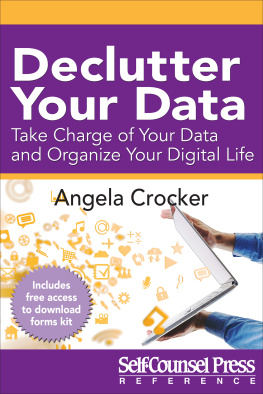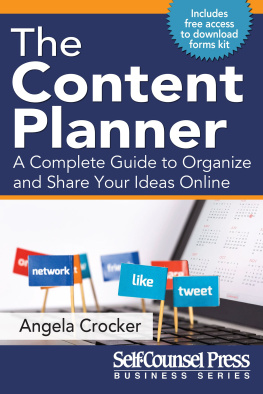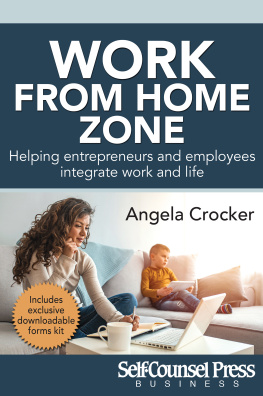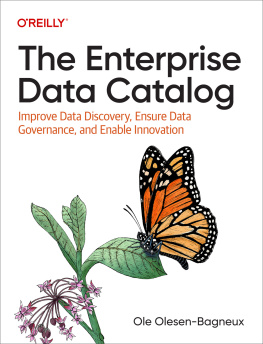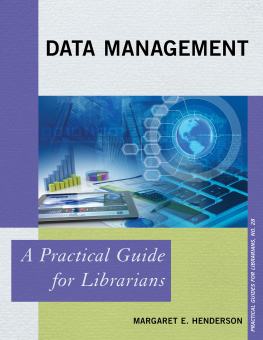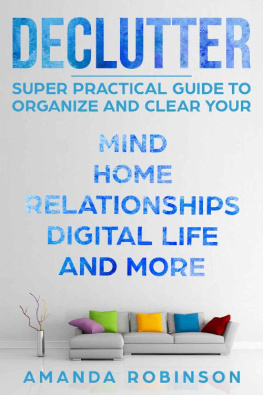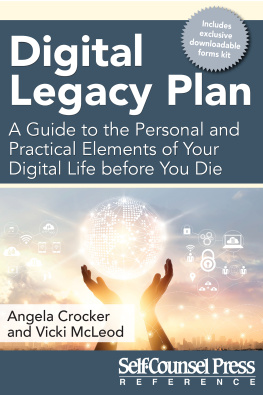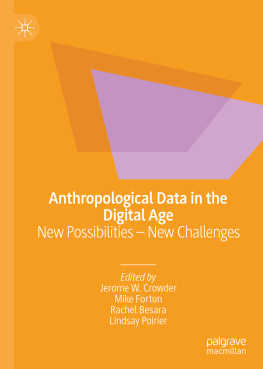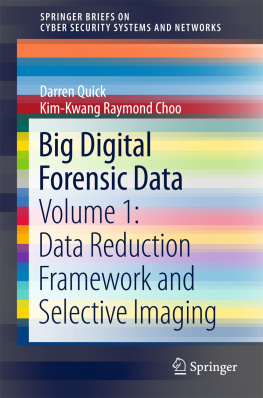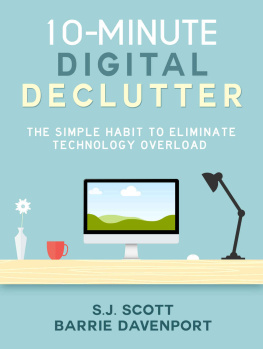Angela Crocker - Declutter Your Data: Take Charge of Your Data and Organize Your Digital Life
Here you can read online Angela Crocker - Declutter Your Data: Take Charge of Your Data and Organize Your Digital Life full text of the book (entire story) in english for free. Download pdf and epub, get meaning, cover and reviews about this ebook. year: 2018, publisher: Self-Counsel Press, genre: Home and family. Description of the work, (preface) as well as reviews are available. Best literature library LitArk.com created for fans of good reading and offers a wide selection of genres:
Romance novel
Science fiction
Adventure
Detective
Science
History
Home and family
Prose
Art
Politics
Computer
Non-fiction
Religion
Business
Children
Humor
Choose a favorite category and find really read worthwhile books. Enjoy immersion in the world of imagination, feel the emotions of the characters or learn something new for yourself, make an fascinating discovery.
- Book:Declutter Your Data: Take Charge of Your Data and Organize Your Digital Life
- Author:
- Publisher:Self-Counsel Press
- Genre:
- Year:2018
- Rating:5 / 5
- Favourites:Add to favourites
- Your mark:
- 100
- 1
- 2
- 3
- 4
- 5
Declutter Your Data: Take Charge of Your Data and Organize Your Digital Life: summary, description and annotation
We offer to read an annotation, description, summary or preface (depends on what the author of the book "Declutter Your Data: Take Charge of Your Data and Organize Your Digital Life" wrote himself). If you haven't found the necessary information about the book — write in the comments, we will try to find it.
Angela Crocker: author's other books
Who wrote Declutter Your Data: Take Charge of Your Data and Organize Your Digital Life? Find out the surname, the name of the author of the book and a list of all author's works by series.
Declutter Your Data: Take Charge of Your Data and Organize Your Digital Life — read online for free the complete book (whole text) full work
Below is the text of the book, divided by pages. System saving the place of the last page read, allows you to conveniently read the book "Declutter Your Data: Take Charge of Your Data and Organize Your Digital Life" online for free, without having to search again every time where you left off. Put a bookmark, and you can go to the page where you finished reading at any time.
Font size:
Interval:
Bookmark:
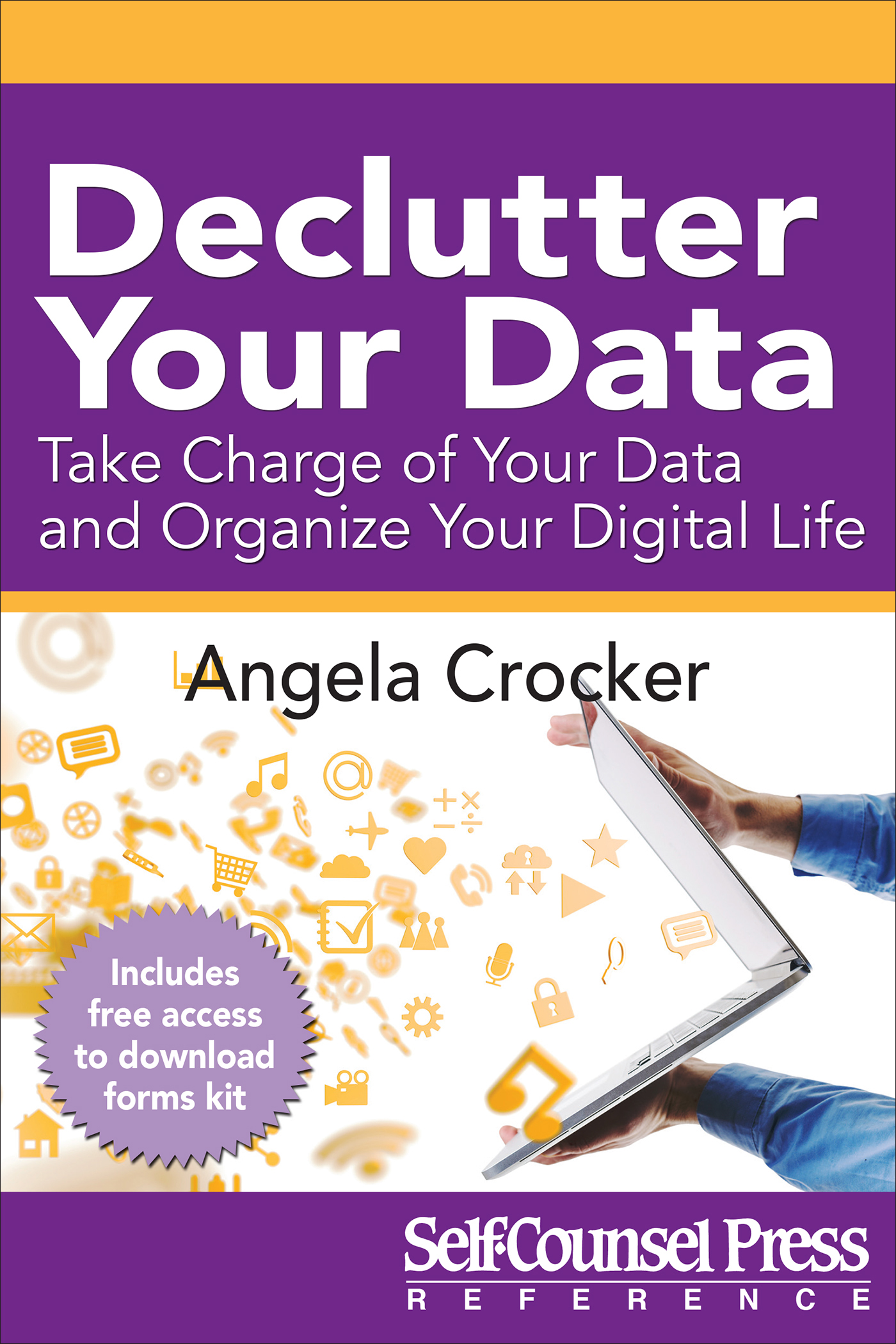

Digital decluttering is the process of organizing your data and technology in ways that support your lifestyle. To get started, you need to be clear on what digital clutter is and why decluttering is important to you. In this part, well explore the digital clutter problem, the benefits of digital decluttering, and how the process works.

Welcome to Declutter Your Data. Simply by reading this book youll be better equipped to take charge of your digital life. Read on and youll have a plan with concrete action steps to organize your information and declutter your data. Youll also figure out why data decluttering is important to you.
Im Angela Crocker, your guide to take charge of your data and organize your digital life. Ive been living with computers since 1979 and have been on the Internet for more than 25 years. Ive watched online technologies evolve and observed how this evolution has changed our lives at home and in the office. The pace of change is extraordinary! The rate at which weve adopted new technologies and improvements to Internet upload and download speeds are impressive. Add to that the evolution from pagers to smartphones and the increased power of the computer for even more change.
However, all that change has created a problem: Digital clutter.
Before we dive in, it may be helpful to pause a moment and consider what digital cluttering means to you. How do you define it? How does digital clutter make you feel? How does it impact your life? What prompted you to pick up this book? Throughout the digital decluttering process, well pause to complete short exercises to help you along your digital decluttering journey. See Sample 1: Preconceptions about Digital Decluttering, and then find the worksheet on the digital download kit included with this book, for you to complete.

Digital clutter is a fairly new problem. Our ancestors may have lived with too many objects but they didnt live with the same volume of information. By ancestors I mean our parents just one generation back. Some grew up with analog information and have had to adapt to digital living while others were born into the digital life. For both groups, digital clutter is an artifact of the Internet, personal computers, social networking, and smart devices. We now consciously create and unconsciously contribute to terabytes of data every year.
Our personal collection of data started slowly. With home and office computers, work previously done by hand or with typewriters and adding machines, moved into word processing and spreadsheet software. Files were stored on floppy disks and rudimentary hard drives. In 1993, there were about 600 websites. Early Internet adopters may have accessed those first websites, a few Bulletin Board System (BBS) message boards and, possibly, had an ICQ identity. I seek you, remember?
Flash forward and today we live with what Terry OReilly calls too much data smog. (This I Know: Marketing Lessons from Under the Influence), Knopf Canada, 2017). We have millions of websites and years worth of YouTube videos to watch plus social networking and cloud storage. Add to that our mobile phones, tablets, laptops, and smart home devices. We have vast search histories and medical, financial, and shopping digital records. And lets not forget any lingering remnants of data from our older collections of USB drives, SD cards, and defunct computers. Think back to when you first started using a computer. How much data have you created since then? How much information have you accessed? As R Ray Wang notes in his book Disrupting Digital Business (Harvard Business Review Press, 2015), The volume of data we capture is already beyond human comprehension.
To quantify that data think in terabytes (TB). You know, bytes, kilobytes, megabytes, gigabytes, terabytes, and so on. The Register recently quoted a Western Digital Corporation finding that the average US household has 41.5 TB of data spread across 14 digital devices, and this is only going to grow (www.theregister.co.uk/2017/08/31/wdc_home_nas_box/, accessed September, 2017). That 41.5 TB can hold more than 1 million hours of 1080 HD video or nearly 21 million digital photos of 2 MB each or trillions of pages of text. Thats just the average per household!
Unfortunately, as Nancy Collier observed in her book The Power of Off, (Sounds True, 2016), We spend a lot of our time just clearing the junk, which were now forced to do in order to discover anything we might actually care about. By sheer volume alone, Im certain everyone needs to do some data decluttering.
No matter its origins, digital information is central to our way of living today. As a result, weve got to take ownership of our digital footprint. Beyond simply clearing the clutter, there are many benefits. Better organization means efficiency and, if time is money, it improves your bottom line. By knowing what information you have and where to find it, you can make the most of your time both online and offline. In doing so, you reduce the amount of information you have to process what psychologists call cognitive load and self-administer the antidote to information overwhelm.
That recovered time and reduced cognitive load can be used to nurture your interests and try new things. Furthermore, reducing the digital noise around you minimizes distractions and creates space to focus on more complex projects, including analog projects away from your computer.
Digital decluttering also creates space for self-care. Taking control of the amount of time you spend online allows you to focus on whats important to you. Time away from the screen is the best prevention for sitting disease, a term I first heard from the pelvic health specialist, Kim Vopni. Less screen time can also improve your sleep patterns, protect your hearing, and give your eyes a much needed rest.
That same self-care space allows you to nourish meaningful relationships, reigniting your listening skills and ability to focus. Genuine connections are often lost in the digital clutter and rekindling the skills to foster those connections benefit all. If youre a parent or other role model for children and youth, demonstrating the healthy use of technology is one of the best ways to pass on this digital life lesson.
In addition to the practical, physical, and social benefits of digital decluttering, you may find peace in other aspects of your life. Understanding your data and how you use technology can highlight the myths of the perfectly polished life. What is published online is often a curated collection of posts that perpetuate the myth of the perfect life. Knowing this can reduce envy and your need to keep up with the Joneses.
Similarly, understanding your data can help you find the elements that are key in your quest for digital happiness. While this book is about organizing data, it is also designed to advocate for informed digital living. I want you to use data and technology to build your ideal life. If you love taking photographs, then take photographs! If Instagram Stories make you happy, then create and view them. However, I want you to put strategies in place to put boundaries around your use of technology so that the digital parts of your life are fulfilling, not draining.
Font size:
Interval:
Bookmark:
Similar books «Declutter Your Data: Take Charge of Your Data and Organize Your Digital Life»
Look at similar books to Declutter Your Data: Take Charge of Your Data and Organize Your Digital Life. We have selected literature similar in name and meaning in the hope of providing readers with more options to find new, interesting, not yet read works.
Discussion, reviews of the book Declutter Your Data: Take Charge of Your Data and Organize Your Digital Life and just readers' own opinions. Leave your comments, write what you think about the work, its meaning or the main characters. Specify what exactly you liked and what you didn't like, and why you think so.

